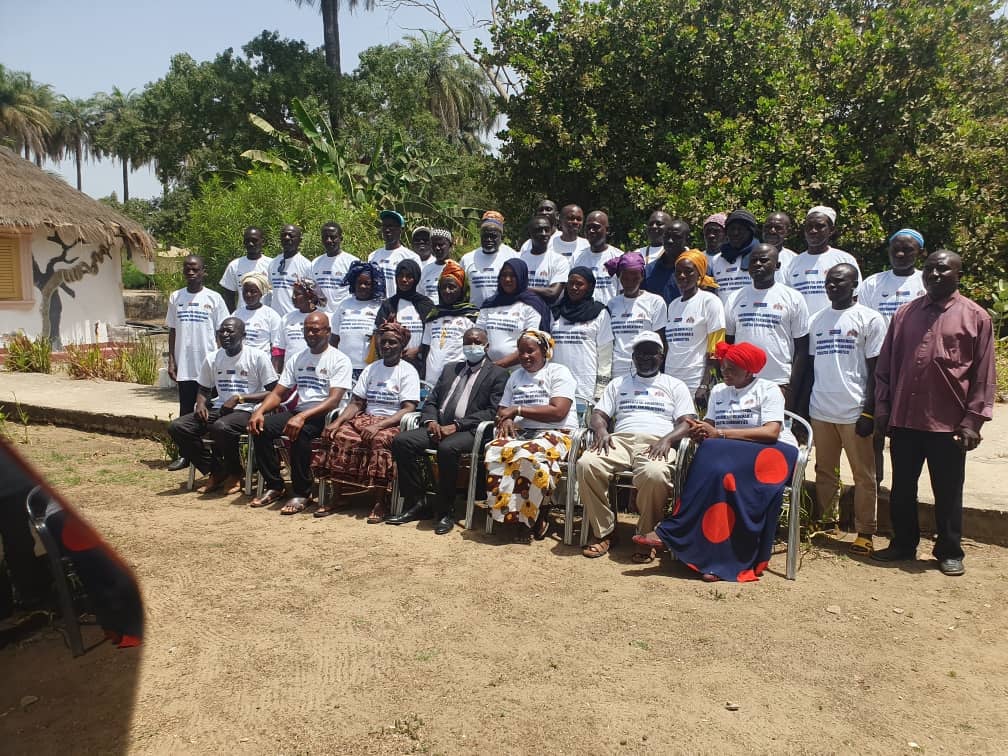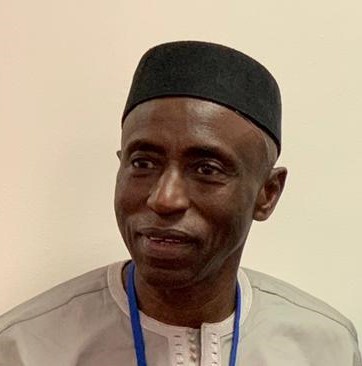By: Sheikh Alkinky Sanyang
The Governor of North Bank Region has reiterated that Climate Change is and continue to be a major economic, Social & Environmental problem and therefore called for aggressive and integrated approach in building local capacities on climate resilience in a bid to reduce the negative impact and phenomenon on the livelihood of the local population.
Governor Lamin Saidykhan make this revelation during the opening ceremony of a three day sensitization outreach programme of vulnerable communities targeting local Village Development Committees (VDCs), Community Based Organization (CBOs), Women and youth organizations within the NBR on the impacts of climate change on grassroots recently held in Albreda, NBR. The programme is being funded by the Global Climate Change Alliance project (GCCA+) of the European Union (EU) and being implemented by the National Environment Agency (NEA).
According to him, the objective of this local conclave is to sensitize coastal communities and engage their active participation in the sustainable management of our shared natural resources against climate change-induced risks and impacts. As more than 60 percent of the country’s population live within the Gambia’s coastal and marine zone, he revealed that our coastline is likely to undergo the most profound change in the near future if positive intervention strategies are not put in place. Consequently, unless careful environmental management and planning are instituted, severe conflicts over coastal space and resource utilization are more likely; and the degradation of natural resources will hinder development options.
“Coastal zones the world over have historically been among the most heavily exploited areas because of their rich natural resources. Correspondingly, there is also a sharp conflict between the need for utilization of coastal resources and the need to conserve the resource to ensure sustainable supply of those resources for future generations”. NBR Governor posited.
In many countries including the Gambia this conflict has already reached a critical stage; with large parts of the coastal zone polluted from land based sources, fish stock declining, wetlands drained or encroached, beaches eroded, arable agricultural land silted or affected by salinity and infrastructure threatened or ruined. If these coastal resources are to be maintained and or restored, effective action is urgently needed NOW.
In order to address these concerns, an Integrated Coastal Zone Management (ICZM) have been devised. ICZM is a governance system that puts in place the legal and institutional framework necessary to ensure that development and management plans for coastal zones are integrated with environmental, social and economic goals and are developed with the full engagement and participation of those affected. The purpose of ICZM is to maximize the benefits provided by the coastal zone and to minimize conflicts and harmful effects of activities upon each other, on resources and on the environment. It further seeks to guide government decision making on the equitable allocation and sustainable use of natural resources.
In conclusion he exposed that the Government of the Gambia recognizes the continued partnership and support by the GCCA+ project through The Gambia-EU Cooperation to enable us institutionalize ICZM programme for the country.
According to the Project Coordinator Aruna Jobe, this outreach programme geared towards sensitization on grass roots climate change impacts on our environment and livelihood. This, he said demonstrates the good partnership that exists between the Government of the Gambia and the European Union in this crucial crusade against climate change and its impacts on people’s lives and livelihoods. Buttressing on, he further revealed that climate change is the biggest challenge to our development efforts.
It is important to note that both mitigation and adaptation efforts are geared towards the improvement of our lives and those of our children yet unborn, Aruna Jobe hammered the message. He further warned participants to effectively play their part and contribute meaningfully in all climate actions. “Each and every one of us in our capacities and competencies should work harder to achieve these goals”. He preached.
NEA`s Program Manager for Coastal and Marine Environment Lamin Komma further called onto participants to actively help in the dissemination of whatever knowledge gathered to the people they represented and ensure proper implementation of the workshop recommendations.




